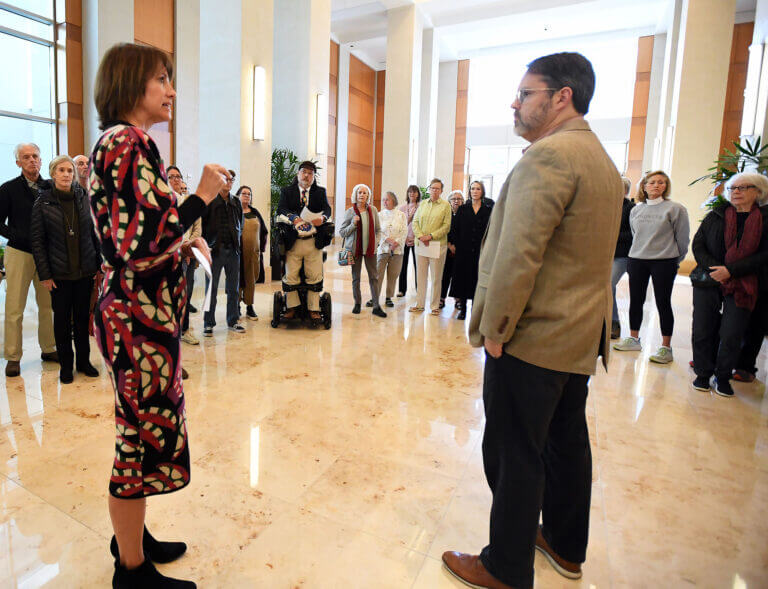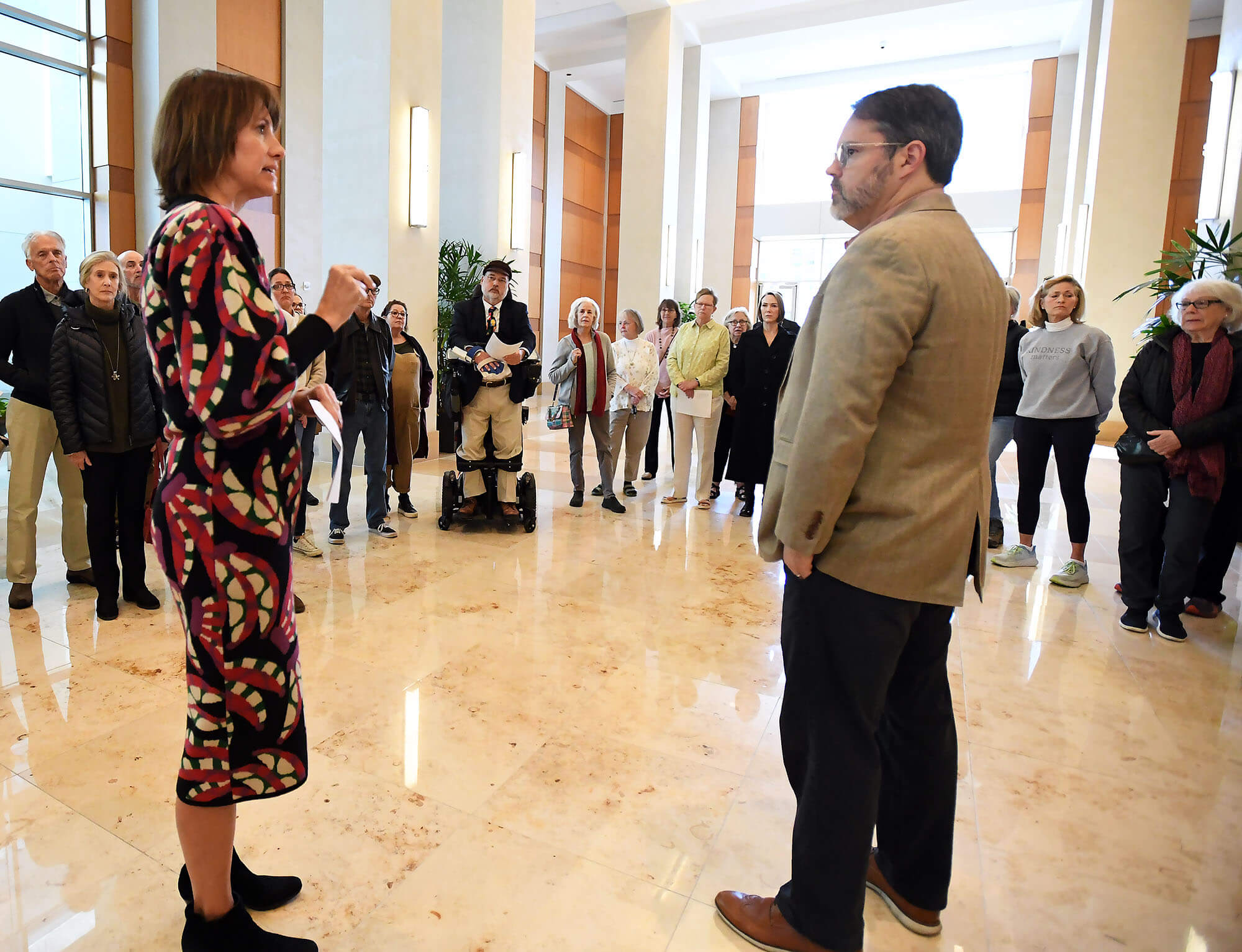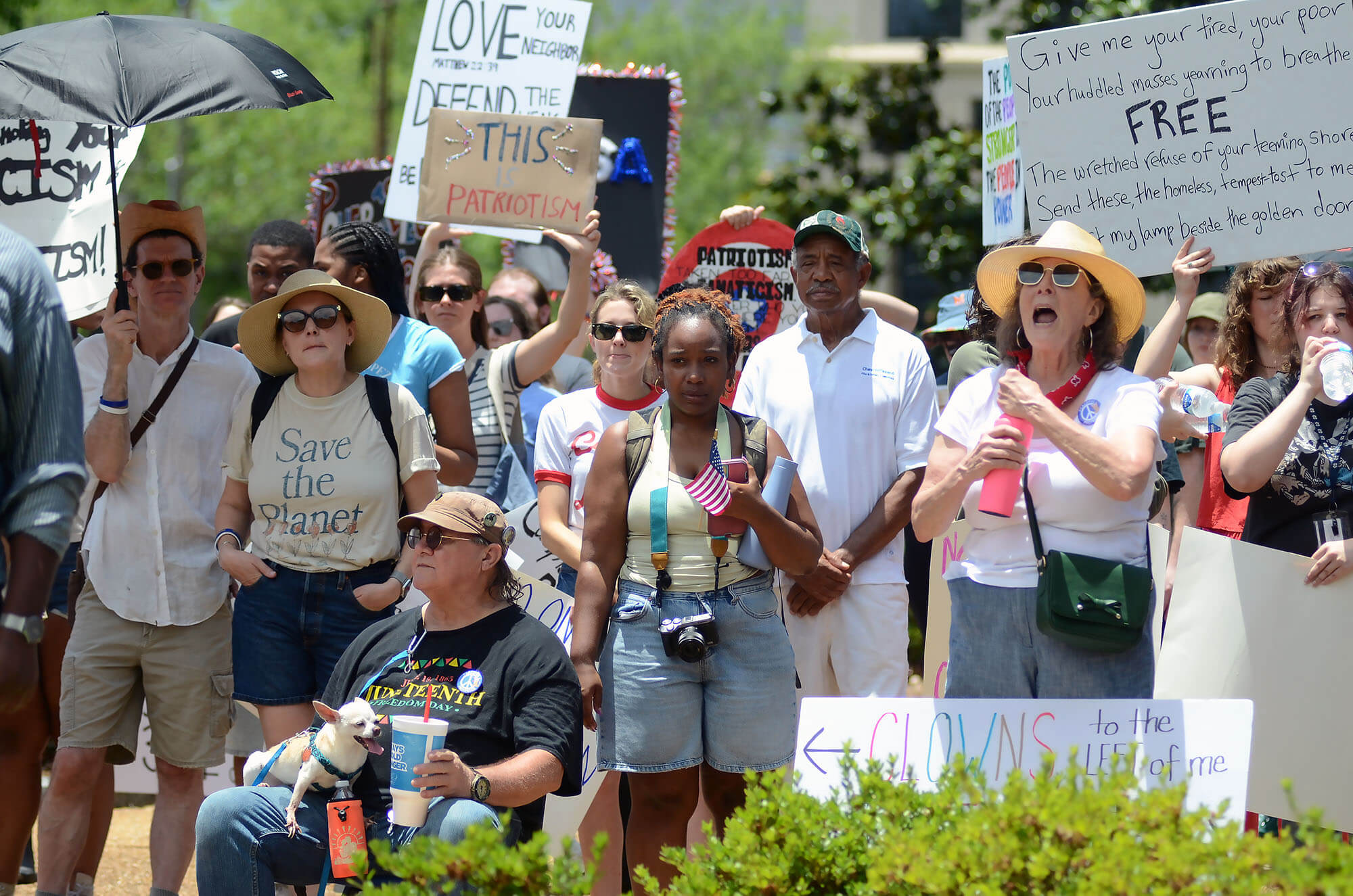

Cindy Hyde-Smith did not appear to enjoy being approached in late April by voters who were concerned about reports that President Donald Trump’s administration was pushing to slash federal Medicaid spending.
“Medicaid is not going anywhere,” the U.S. senator assured a group of three constituents at a Ridgeland Chamber of Commerce event in April before being ushered away by a staffer, according to people who witnessed the exchange. “Nothing is going to happen to Medicaid. Why is everyone’s head exploding? I can’t understand why everyone’s head is exploding.”
Fast-forward two months, and Hyde-Smith gleefully voted to do exactly what she had so quickly dismissed that day: cut Medicaid funding.
In Washington, shielded by the Beltway and a perceived security blanket of Trump’s MAGA acolytes, Hyde-Smith and the other four Mississippi congressional Republicans in Congress gloated about their votes.
Back home in Mississippi, however, many heads did indeed explode — and with good reason.
Because of Trump’s so-called “Big Beautiful Bill” that every state delegate except Democratic Rep. Bennie Thompson voted to pass, an estimated tens of thousands of Mississippians will lose Medicaid coverage and rural hospitals will lose millions annually in federal funding. While wealthy individuals and corporations will see sizable tax cuts under the legislation, most Mississippians will barely benefit. The bill strips away much of the nation’s safety net for our poorest residents — of which there are obviously many in our poorest state in the nation — and it will add an estimated $3 trillion to our national debt.
For the thousands of Mississippians who had spent weeks trying to relay the long list of negative consequences of the bill to their Washington delegation, final passage felt like a punch to the gut.
It’s a tale as old as time in Mississippi: voters of any and all political persuasions were ignored by their Washington representatives. Mississippi’s congressional representatives have long been out of touch with their constituents once we send them to the halls of the U.S. Capitol, but their avoidance this time felt especially pronounced as valid concern after valid concern was raised about the bill. Their sustained promises to not cut Medicaid, to not significantly raise the national debt and to take good care of people in their home state were not remotely kept here.
If you’re an everyday Mississippi citizen and you want to lodge concerns to your congressional delegation, good luck. Unless you’re deemed important enough to land on their Washington office schedule, you’ll need to get creative. You can call their D.C. or district offices, but you’ll either be directed to a voicemail box or talk briefly with an intern or other low-level staffer whose mandate is to take some notes and move on.
Over the past few months, there has been a loosely coordinated statewide effort to get the attention of those leaders. Thousands of Mississippians took part.

They called. They emailed. They protested outside district offices. They rallied in front of the state Capitol and courthouses. They sent letters, knocked on doors and jammed phone lines. They followed our senators and representatives to luncheons and business forums. They told them — over and over — that they were afraid about the real harm the “Big Beautiful Bill” would do to health care access in one of the sickest, poorest states in America.
In many cases, though, their cries were likely never heard at all by the elected officials.
On June 30, the day before the Senate passed the bill, U.S. Sen. Roger Wicker’s Washington office was not accepting calls or even messages from constituents because “the voicemail inbox was full.” Five days earlier on June 25, an automated phone message at Wicker’s D.C. office said, “Calls to this number have been suspended.”
On July 3, the day of the final House vote to pass the bill, Mississippi Rep. Michael Guest’s D.C. office phone line had a busy signal most of the day. When a group of about a dozen people showed up to Guest’s district office in Brandon on July 3, the doors were locked and a sign was taped to the door with a number to call. An organizer of the protest called the number and spoke for a few minutes by phone with a Guest staffer, who some attendees believed to be inside the Brandon office all along.
Since February, groups of Mississippi constituents made three trips to Wicker’s Jackson office and three trips to Hyde-Smith’s Jackson office. Each time, they were either locked out of the offices or granted just a few minutes with staffers inside who worked to downplay their concerns.
So why, exactly, do our elected officials feel so confident ignoring the will of so many constituents or transparently voting against our state’s interests?
There’s certainly a long conversation to have about how special interest groups, led by the uber-wealthy who have never stepped foot in Mississippi, have commandeered our representative democracy. There’s even more to say about how our nation’s shadowy campaign finance regulations, successful efforts to gerrymander congressional districts and a slew of shady election laws allow D.C. incumbents to cling to power.
But in this instance, the answer could be a lot less about our government systems and a lot more about what’s right in front of us.
“They’re more afraid of Trump than they are of their own constituents,” surmised Kathleen O’Beirne, one of the people who confronted Hyde-Smith about the Medicaid cuts back in April. “Looking specifically at their votes on Medicaid, it sure seems like their disdain and hatred for poor people and people of color is stronger than their love for Mississippi. There’s no other explanation, especially if you understand how health insurance works. And I’d assume and hope they all do.”
O’Beirne, a retired attorney and mother of two in Ridgeland, has helped organize nine Mississippi rallies since February. She’s emerged as a leader for thousands of Mississippians who are feeling more than overlooked or slighted right now by our elected officials.
“It’s definitely frustrating at times,” she acknowledged of not being able to get through to congressional leaders. “But we aren’t going to stop. We’re not easily deterred. We’re seeing what’s happening, and we’re adding more Mississippians who are tired of this. If they (members of the congressional delegation) aren’t going to listen, we’re making it our job to be a thorn in their sides.”
As the negative effects of the legislation will become clearer in Mississippi over the next few months and years, it’s worth closely observing whether our state’s congressional delegation starts feeling a prick from that thorn. For now, they don’t seem to notice it.
- State Supreme Court considers reviving former Gov. Phil Bryant’s lawsuit against Mississippi Today over welfare scandal coverage - February 18, 2026
- Winter storm update: Mississippi still waiting on fed declaration for individual assistance, lawmakers crafting plan to fund recovery - February 18, 2026
- Shy of special session, Mississippi school choice appears dead - February 18, 2026